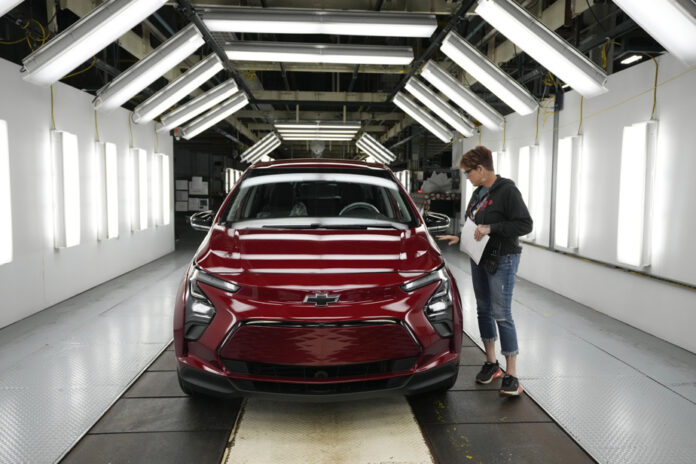A few months after announcing its retirement, General Motors (GM) confirmed the return of the Chevrolet Bolt for the second generation. The electric subcompact marketed since 2017 will therefore survive with more modern components to ensure its competitiveness and durability.
General Motors CEO Mary Barra announced the decision during a conference call with shareholders as part of the company’s quarterly earnings filing last week. Barra had touted the model in June on the Marketplace podcast, but said its abandonment was then due to its components being significantly more expensive to produce than GM’s new Ultium electric platform. It was, in short, a trial balloon to test the reaction of the public.
To justify this choice to bring back one of the most affordable electric vehicles today, the CEO of the American giant explained that the Bolt “has recorded record sales and customer satisfaction and retention rates among the highest in the industry.” Between January and June 2023, 6,871 Bolts sold in the Canadian market, a 455% increase over last year. However, this growth is largely attributable to the shutdown of its production for a few months due to a problem with the assembly of its batteries produced by LG Chem.
Interesting stat: Over 70% of Bolt buyers were non-GM vehicle owners. It is therefore a very important product to win over an external clientele.
With 417 km in the bank, the outgoing generation of the Bolt already ensures great competitiveness thanks to its starting price of $38,943. Mary Barra refrained from providing any technical data on its replacement, but specified that it will benefit from Ultium technology, the latest generation of batteries developed by GM.
This fact would suggest a gain in terms of autonomy as well as a greatly enhanced charging speed compared to the charging power capped at 55 kW of the current Bolt. Could we also hope for a power boost as well as the addition of an all-wheel-drive version? Everything is possible thanks to this modular architecture. One thing is certain: we want the subcompact to retain its reduced dimensions that make it an excellent urban vehicle.
No production schedule has been presented for the moment, but it is argued that its development is accelerated by the latest advances in this area made by GM for its electric component.















